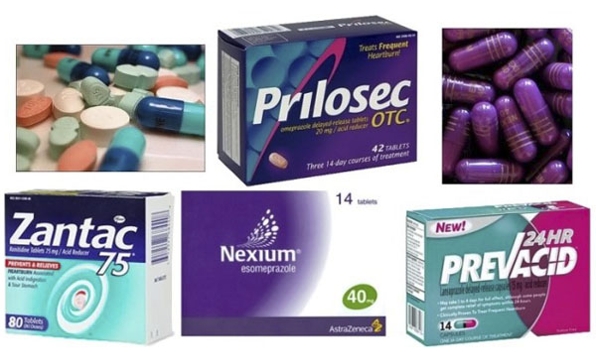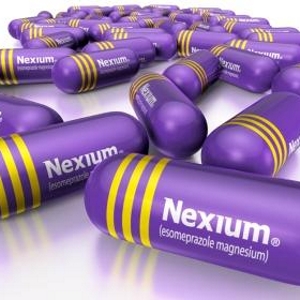Do you take ‘long-lasting’ anti-acid medications? The kind that are being advertised so heavily these days? A new study out of Scotland suggests you may potentially be letting yourself in for some serious harm along with the good you feel from them. Read on and decide for yourself…
 A selection of the most-common PPI-based anti-acid medications. I’ve got along nicely for decades on the old standard, chalky, chewable tablets that neutralize excess
A selection of the most-common PPI-based anti-acid medications. I’ve got along nicely for decades on the old standard, chalky, chewable tablets that neutralize excess
acid where it lives, then pass through your system harmlessly.
The meds in question are commonly known (in medical circles) as PPIs (Proton Pump Inhibitors). They can dramatically reduce the production of disgestive acids for prolonged periods of time. That gives you the relief you’re looking for – essentially, the green light to go out and eat a whole lot of stuff that would normally upset your stomach. But that’s not all they’re doing. According to Wikipedia, PPIs can have effects on your metabolism, your cardiac health and your susceptibility to serious diseases such as pneumonia.
That’s all by-the-by today, though. We’re looking specifically at a recent study published in the British Journal of Clinical Pharmacology in which PPI are linked with a significant increase the risk of serious intestinal infections including the campylobacter bug which is deemed responsible by authorities for most of the day-to-day digestive upsets we suffer (diarrhea, abdominal pain, malaise, fever, nausea and vomiting). More serious is the link to a several-times-higher than normal risk of getting a C.difficile infection, which brings with it a longer list of more serious consequences:
- Watery diarrhea 10 to 15 times a day
- Abdominal cramping and pain, which may be severe
- Rapid heart rate
- Fever
- Blood or pus in the stool
- Nausea
- Dehydration
- Loss of appetite
- Weight loss
- Swollen abdomen
- Kidney failure
- Increased white blood cell count
How do I know what’s a PPI?
Read the package. If it says OTC, Omeprazole, Pantoprazole or, basically, anything that ends in ‘prazole’. If in doubt, ask your doctor.
What do you do?
If you want to keep on taking PPIs, doctors say you should be particularly vigilant about kitchen and personal hygiene, especially when handling Chicken and other poultry products. That’s where C. difficile usually originates.
Better yet, I say dump the PPIs unless your doctor says you really need them. I’ve gotten along all my life on the old standard, chalky, chewable tablets that neutralize excess acid where it lives and then pass harmlessly through your system. I also suspect – though there’s no official evidence to support my contention – that the longer you take PPIs, the lazier your system becomes in its own defense. And that might lead to eternal dependence on the meds! Anything that makes me dependent on it scares me.
Anyway, I thought you should know.
~ Maggie J.

